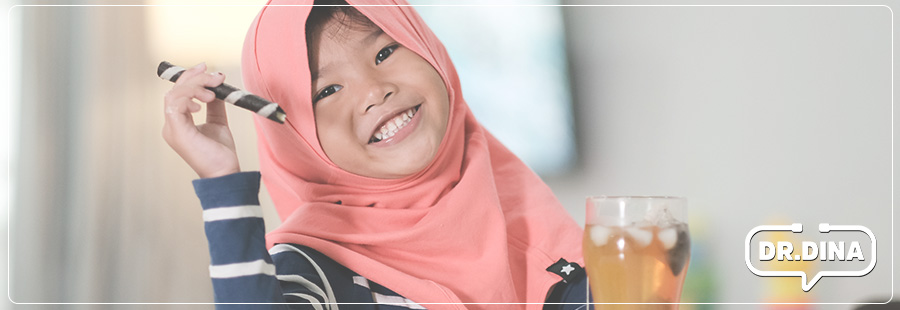COVID Vaccine Trials in Kids
Parents are clamoring to enroll their kids in the first COVID-19 vaccine for kids trials in young children.
As such trials get underway to test Pfizer and Moderna vaccines in kids, scientists seek answers to important questions about how safe and effective the vaccines are.
In short, the trials will ensure the vaccines are safe in kids and look for differences in children’s immune systems and susceptibility to COVID-19 once vaccinated.
Vaccine Manufacturers
These new vaccines are remarkably effective and safe, according to the safety data.
Three available vaccinations can be given to children age 12 years or older, with clinical trials in babies as young as six months currently underway.
The American Academy of Pediatrics urges everyone to get vaccinated for COVID-19;

Do We Need To Vaccinate Children?
Children rarely develop severe forms of COVID-19, and deaths from the disease are even rarer. However, around 1/1000 kids (or maybe less, depending on the study evaluated) who experience even mild infections can go on to develop a sometimes-deadly condition called multi-system inflammatory syndrome in children (MIS-C).
Evidence shows that vaccines may prevent the transmission of COVID-19, so vaccinating children could help us achieve herd immunity to decrease overall transmission.
Children likely aren’t ‘super-spreaders of COVID-19, as they are for viruses like influenza.
But as variants of concern increase, and with more adults getting vaccinated (and therefore less likely to get sick or transmit the illness), children and adolescents may account for more spread than earlier. COVID-19 spread is now much more significant in younger cohorts than earlier in the pandemic.
How Will The Kids’ Vaccine Trials Work?
Vaccine studies in children under 12 years old will be similar to those studies in adults.
The children will receive a range of doses to find one that leads to a robust immune response while avoiding side effects. We are looking for the best dose to protect without leading to ill effects.
Once researchers identify the best dose, several thousand participants will be randomized to receive two doses of a COVID-19 vaccine or a placebo shot such as saline.
These children will be followed for months or years to ensure the vaccine is effective and safe.
Do Kids Need To Provide Consent For Vaccine Trials?
In research studies involving adults, participants provide informed consent. A legal guardian agrees to their involvement in studies involving kids, but older kids will also consent if they are old enough to do so.
They must understand the trial and what they are participating in.
If you think about the young kids in your life, most children, even as young as 4 or 5, likely understand in an age-appropriate way what is going on in the world and how vaccines can keep them safe.
Though my children are not involved in a vaccine trial, I am sure my kids (age 10, 8, 6, and 3) would all understand the idea behind these studies and could provide informed consent.
My three-year-old knows what vaccines are and how they help and would be pretty motivated to get a COVID shot, I am sure.
Will The Kids’ Vaccine And Adult Vaccine Affect Children And Adults Differently?
Kids’ immune systems are very robust. They are constantly exposed to new viruses and bacteria their bodies have never seen before, so they produce strong immune responses to vaccines.
Early vaccine trials show that kids 12–15 years of age who received two Pfizer doses developed substantially higher levels of COVID-19 antibodies than did people 16-25 years of age.
The vaccine candidate showed to have a potent immune system. This leads to more side effects like fever, swelling, and pain at the vaccine site, aches and pains, headache, and fatigue.
Researchers will have to determine the best dose to minimize side effects and trigger a robust immune response for vaccine development.
Researchers will also need to ensure that COVID-19 vaccines do not interfere with other routine childhood vaccines.
We want to ensure kids develop immunity to all those illnesses, in addition to COVID-19. Researchers will have to figure out how the COVID-19 vaccine should be integrated into the routine childhood vaccination schedule.
How will researchers determine if the COVID-19 vaccines work in children?
National institutes did a study on tens of thousands of adults randomly assigned to receive a COVID vaccine or placebo. This was to help determine if the vaccines protected against COVID-19 infection and illness.
The studies involving kids will look at fewer participants but will identify the same metrics: how many kids who received a vaccine were infected with COVID if they were infected, how sick they got, and may look at measuring viral levels and antibody levels in the blood.
The Pfizer trial of adolescents demonstrated 18 people in the placebo group got infected with COVID-19, and no one in the vaccine group did. We are looking for a similar response in kids.
How can we tell if the vaccines are safe for kids?
Safety is essential in clinical trials involving kids, and COVID-19 vaccine trials will be under the microscope (pun intended!). We need the community to trust these vaccines to keep their kids safe, not pose an unnecessary health risk.
The vaccine trials will look for immune responses that might make COVID-19 infection worse (like the stimulation of the immune system) and for signs of immune reactions like those in MIS-C.
With the rising concern around the risk of blood clots from the AstraZeneca and Johnson & Johnson vaccines, it is unclear how these vaccines will be studied in kids. However, vaccine candidates in children are far less likely to suffer from blood clots, so it may not affect studies at all.
The University of Oxford has already paused a small trial in kids 6-17 years of age that started in February 2021, though we are unsure why. Johnson & Johnson has said they will include teens in an upcoming trial, but their trials are on hold while the clot risk is investigated.
FAQ – Frequently Asked Questions
Are the clinical trials safe and trustworthy?
FDA and public health authorities set to give Pfizer vaccine full approval. While approval doesn’t cover young people ages 12 to 15, they can still get the Pfizer vaccine through emergency use authorization. No Covid vaccines have been authorized or approved for use in children under 12 as of Aug 23, 2021.
What is the World Health Organization’s opinion?
The Pfizer/BioTech vaccine is suitable for people aged 12 and above.
Vaccine trials are ongoing, so the World Health Organization will update its recommendations when the evidence or epidemiological situation warrants a change.
Is covid an infectious disease?
According to disease control COVID-19, it is an infectious disease caused by the novel coronavirus that appeared in late 2019 and can affect other organs.
People with COVID-19 reported a wide range of symptoms, including fever or chills; cough; shortness of breath; fatigue; muscle aches, and body pain, among others which could appear anywhere from two to fourteen days after exposure to the virus itself.
Does the drug administration have a remedy?
In the wake of COVID-19, several experimental drugs are in clinical trials to fight back against this pandemic.
One drug is already FDA approved when used alone, and others have been given emergency use authorization during an outbreak.















